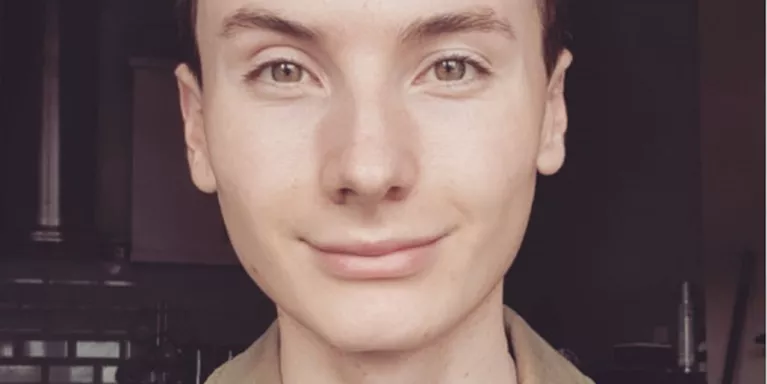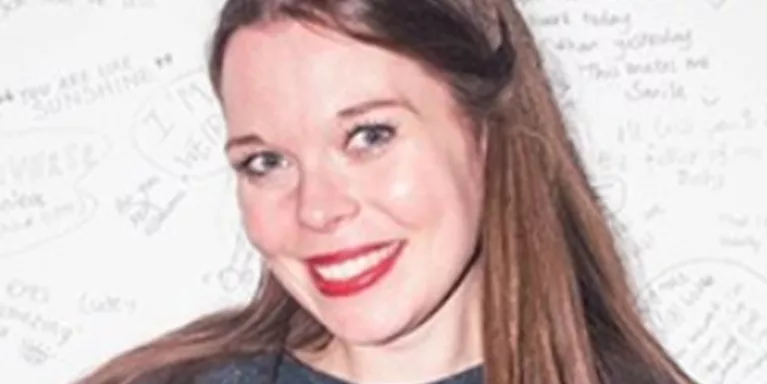Bursting the bubble of anorexia
Mellie blogs about how important positive thinking has been in her recovery.
When you’re inside anorexia’s bubble it doesn’t allow you to picture what life could be like on the outside. The bubble is safe, and the outside isn’t.
Looking back on it now I can see that I had disordered thoughts about my body and food from a very young age.
Looking back on it now I can see that I had disordered thoughts about my body and food from a very young age. Eating disorders can often occur with common characteristics such as competitive and perfectionist traits.
I didn’t enjoy moving on to high school - I was split up from a lot of my old friends and didn’t feel that I belonged with the very few new ones I made. There was a big pressure to be perfect at this new school. Fitness and diet culture were starting to become integral parts of growing up and so the brief friendship circle I did have decided to compete to become the fittest. I thought that If I could win this competition then I would win back the security I had felt earlier in my life.
My experience with anorexia started virtually overnight. I remember going to bed and deciding that from the following day I would push my body through dieting and exercise until it could go no further.
My thirteenth birthday rolled around, and by this time I was so engrossed in anorexia that all other aspects of my mental health began to fail too. I was admitted into general hospital before having my first experience in a psychiatric hospital.
The unit I was sent too wasn’t equipped to cater for my care needs which meant I spent a lot of time in the general hospital. No progress was made. Six months passed which meant I’d breached the admission length allowance and I was discharged.
Three months later I had another crisis, and I was back to square one. With each relapse the anorexia grew more intense. I had relied on receiving nutrition and hydration via tube feeding before this relapse but had always accepted this without being held under restraint. A few months before turning 14 this changed, and I was again admitted into hospital shortly followed by a transfer to an eating disorder unit. Over the next three years I stayed on multiple wards deep inside anorexia’s bubble, continuing to resist recovery.
Recovery from an eating disorder isn’t short-term. It takes hard work every day.
When I was 17 the anorexia bubble started to breakdown. I was beginning to take in hydration and then nutrition myself. I felt that I had been tube fed for so long that it formed part of my identity – how had I gone from never wanting to let go of anorexia to wanting to be so far away from it? I had the tube removed and two more short admissions into adult units to help further breakdown the bubble.
So how did I learn to live without anorexia?
I didn’t.
I learnt to accept what had already happened, weigh up its values and what that meant to me and take recovery as my own!
You are always the most important person in your recovery. If you find positive relationships in others radiate off of these, laugh with them and mirror them.
Like most things, recovery from an eating disorder isn’t short-term. It takes hard work every day. it’s a journey that evolves and changes with self, experiences and time. I started to use what I had been through to strengthen myself. I knew that I could be determined, motivated and achieve what I put my mind too. I wanted to flip the anorexic energy into the recovery process.
Throw yourself into fresh starts, try new things, pick up hobbies, meet new people, join new clubs. Opportunities hold the keys to the future.
Moving away from the identity of being ill was one of the hardest steps. I threw myself into experiencing six months of real recovery with the thought that if it was really terrible, I could go back. Every six months I reapply the rule and keep going. During this time throw yourself into fresh starts, try new things, pick up hobbies, meet new people, join new clubs. Opportunities hold the keys to the future.
You are always the most important person in your recovery. If you find positive relationships in others radiate off of these, laugh with them and mirror them.
I had to test the theories to gain the evidence. When a negative thought comes, I have to acknowledge it and challenge it- Turns out that nothing bad did happen when I ate out in public- who knew.
I recognised that in order to maintain recovery I would have to be aware of when things began to slip. I built myself a first aid kit of things I could turn too when I needed the encouragement to keep going. I put things in it like bucket lists, letters from those important to me, photos, future goals, phone numbers, achievements, sensory objects and distraction techniques.
It takes time, but with persistence comes resilience and sooner than you think relief can come.
Light can appear from even the darkest of places.


Information and support
When you’re living with a mental health problem, or supporting someone who is, having access to the right information - about a condition, treatment options, or practical issues - is vital. Visit our information pages to find out more.
Share your story with others
Blogs and stories can show that people with mental health problems are cared about, understood and listened to. We can use it to challenge the status quo and change attitudes.

















